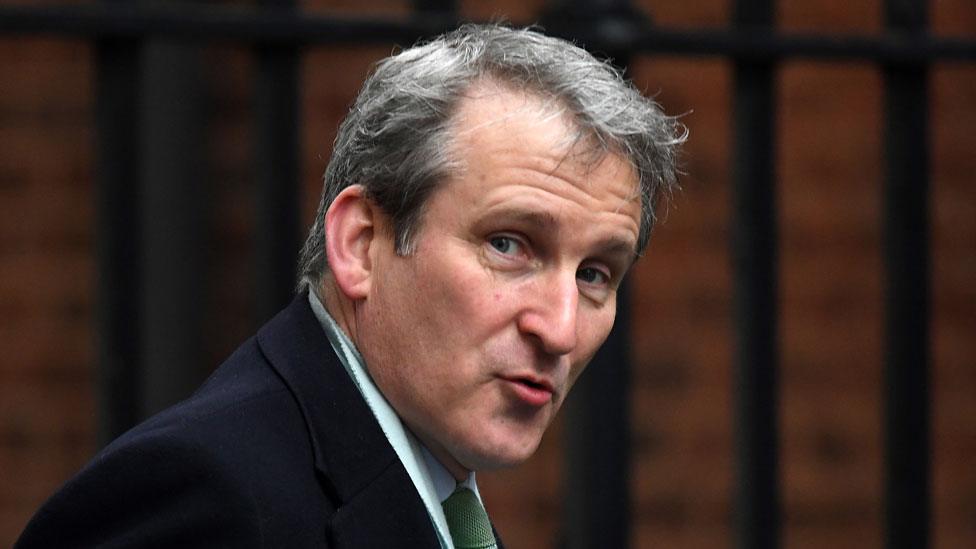Tuition fees not university deterrent, says Hinds
- Published
- comments

There is no evidence higher tuition fees have deterred young people in England from applying to university, says Education Secretary Damian Hinds.
He said applications, including from disadvantaged youngsters, had risen despite fees rising to £9,250 per year.
This is despite a review, commissioned by the prime minister, being expected to call for a significant cut in fees.
But Mr Hinds said the student finance system was "very progressive" and should not put off young people.
The education secretary has written to the higher education regulator, the Office for Students, calling for greater efforts to ensure university access for people from all backgrounds and parts of the country.
Fee cut recommendations?
At the moment, Mr Hinds said, young people from London were five times more likely to get into selective universities than their counterparts in the North East.
He highlighted the need for white, working class youngsters to have fair access to universities, along with other disadvantaged groups.
But he rejected the idea that tuition fees could be a barrier.
"The evidence suggests they aren't," said Mr Hinds.
He said there had been predictions that there would be a drop in applications and take-up of university places after fees had been trebled in 2012.

Damian Hinds says the fees system is progressive and is not deterring applications
But, he said, applications had continued to rise and the system of fees, loans and repayments should not be seen as a reason not to go to university.
The education secretary's defence of fees comes ahead of the findings of a review chaired by Philip Augar, commissioned by the government, which is expected to recommend a reduction in tuition fees.
It follows suggestions that students, currently graduating with debts averaging £50,000, should have to borrow less to go to university.
It was also a response to Labour's promise at the last general election to entirely scrap tuition fees.
'Faster progress'
The OFS has been told by the education secretary to ensure universities make "greater and faster progress" in helping more young people from "under-represented groups" to get into higher education.
But Mr Hinds said that expanding the numbers of disadvantaged students would not mean reducing the numbers of applicants from wealthier families.
"This is not about saying fewer children from any one particular background - it's about saying whatever their background, you should look at the potential of these young people," he said.

But the regulator has said that if all young people went to university at the same rate as the wealthiest, Russell Group universities would need to have twice as many places.
It is establishing a What Works Centre to find successful approaches to widening access and wants universities to eradicate "equality gaps" in recruitment within the next 20 years.
Mr Hinds said £860m was currently being spent on widening participation, including funding from tuition fees and the taxpayer.
But there needed to be more clarity about what was effective and provided value for money.
OFS fair access director Chris Millward said: "A huge amount of time, money and resources are already invested in access and participation.
"But there is a lack of understanding about what works and staff working at the coal face have been calling for a central place for evidence on effective approaches to be systematically gathered and shared.
"The evidence and impact exchange will meet this need, improving outcomes for students and providing better value for money on the investments that are made."
Labour's shadow education secretary Angela Rayner said: "Urgent action is required to ensure that our universities are open to talented students regardless of their background.
"A Labour government will scrap tuition fees, restore maintenance grants for disadvantaged students and fundamentally overhaul the Office for Students so that our education system serves the public good."
- Published5 February 2019

- Published18 February 2019

- Published23 January 2019